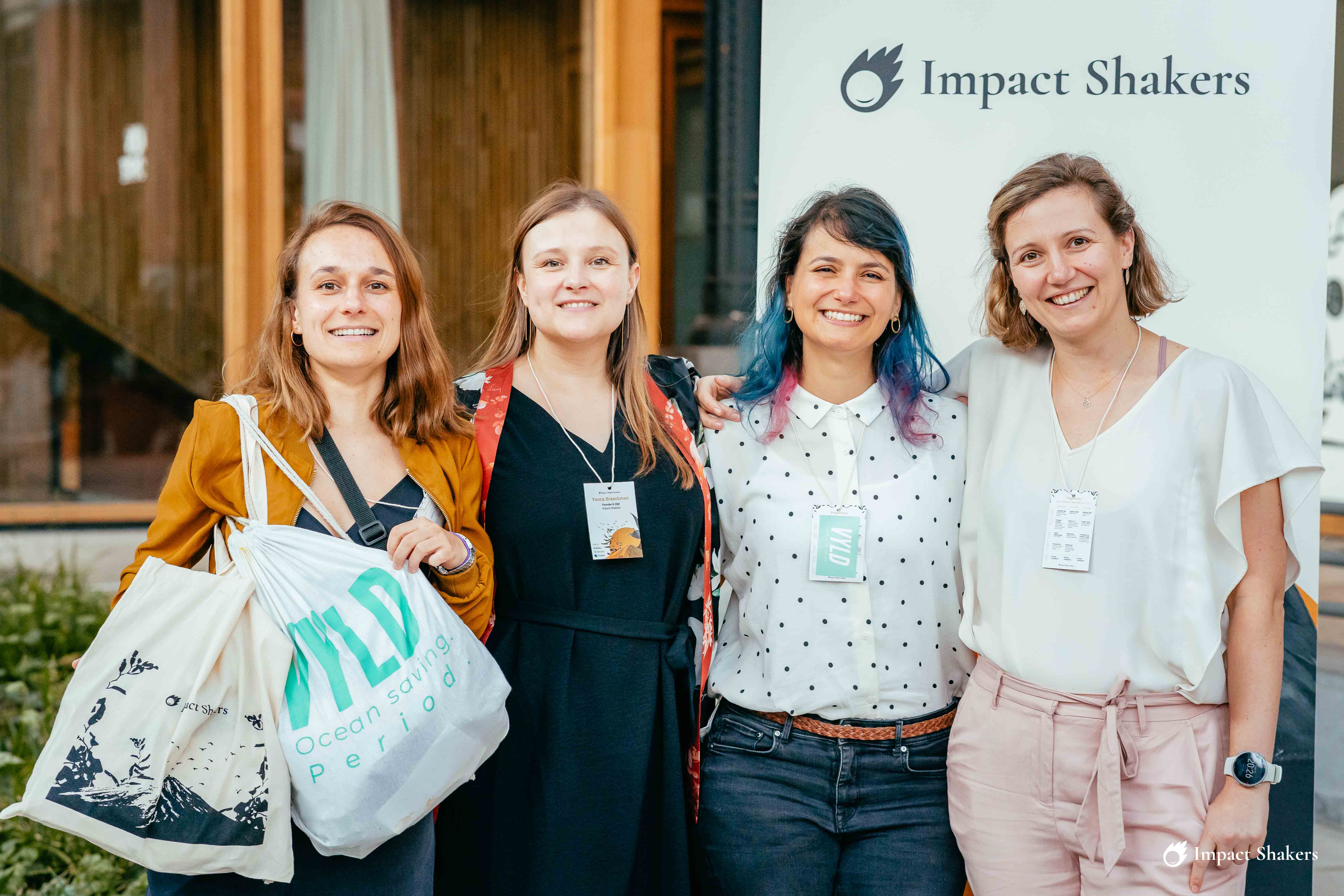Opinion: Electing for impact – how governments should enable innovation for people and planet
According to the Economist, 2024 is the biggest election year in history. Not only are we embroiled in a fundamental debate about whether we are in a “democratic recession”, the elections across the world this year are also about the kind of future we want to build.
As an impact investor, we deal with the question of how to build a brighter future for people and planet on a daily basis. One thing is clear — complex problems require complex solutions and many different stakeholders need to come together to solve issues from climate change to social injustice.
One of the stakeholders with the greatest sway in all of these discussions is of course governments. Based on our interactions with the impact ecosystem over the last five years, we have pulled together a list of six major actions we would love to see from governments around the world to make innovation for people and planet more achievable:
- Re-allocation of dormant assets to impactful causes
- Investment quotas for the very largest pots of money – pensions and insurance
- Tax incentives for investors and consumers alike
- Legal structures that reflect alignment of impact and profits
- Regulation that helps innovation
- A diverse set of voices at every table.
1. Dormant assets for good
What are dormant assets? As you might have guessed from the name, these are amounts of money in bank accounts or sometimes insurance or pension schemes that have lain dormant for many years and where the owners cannot be found. In countries like Belgium, the UK or Germany, the amounts can be in the hundreds of millions or even billions. What better way to ‘wake up’ this money than to put them to work on environmental topics and social inclusion?
The future economy I want to see is one where everyone has a stake. Growth means nothing if it leads to environmental degradation, the enrichment of the few and the stagnation of the many
For example, in the UK over the last decade, £982m of dormant assets were, through a process of voluntary participation, allocated to four causes: opportunities for young people, financial inclusion, social investments and community wealth funds. Organisations like Big Society Capital, which in turn invest the money in ventures fostering social equality, sustainability and other impactful topics, have managed to take this even further and catalyse an additional £3 of match funding for every £1 made available by the scheme.
- Read about Big Society Capital’s latest impact report: ‘Strong growth’ of UK social investment market since 2012 demonstrates resilience of investees

Impact investor and social change activist Antonis Schwarz (pictured) says: “Starting a new impact fund is an extremely difficult endeavour, as many in the impact investing sector will know. With an impact investing wholesaler funded by dormant assets, new fund managers can more easily find an anchor investor that will de-risk the fund thereby attracting more investors.”
Germany currently has an estimated €2bn of dormant assets and Belgium is sitting on over €600m. Time to wake up, don’t you think?
2. Investment quotas for pension and insurance providers
Pension schemes and many insurance providers have to invest their money with long time horizons of often 30 years or more. If we still want a livable world in 2050 (hello, climate targets!), then this presents a great opportunity to invest in projects and businesses that have the long-term thriving of planet and people at heart. So far this has mostly been driven by the industries themselves rather than government action.
Here are two possible options for governments to play a meaningful role in ensuring pension and insurance capital works for people and planet in the long run: (1) create more transparency and choice for citizens (see the Pension Dashboards Programme in the UK) or (2) mandate that a specific percentage of assets have to be invested sustainably, supported by increasing proof points that impact can go hand in hand with returns (GIIN Impact Investing Benchmarks).

Technology entrepreneur and policy advisor Tom Adeyoola (pictured) says: “The future economy I want to see is one where everyone has a stake. Growth means nothing if it leads to environmental degradation, the enrichment of the few and the stagnation of the many. Therefore, we need to create the infrastructure that allows everyone to have the same access to information, products and returns as the wealthy (see Thomas Pikkety, Capital in the 21st Century). This is key to giving citizens a say and unlocking pension capital into UK private equity, including the full spectrum of social enterprises and impact startups to high-growth late stage businesses.”
3. Everyone’s favourite — tax!
Many countries already have tax relief in place for investors in early stage businesses to encourage investment in innovative, early-stage startups. Such tax relief can be very meaningful with up to 30% or even 40% on invested amounts. This poses the question, however, if we really need more innovation in single-use plastic and more effective marketing platforms — or if the relief could be more selective. Given the great success and attractiveness of these schemes, it stands to reason that sustainable and social innovation should benefit, perhaps to an even greater extent, from such tax relief.
This doesn’t just apply to early stage startups, as impact solutions also need to scale. Therefore relief in various forms should extend beyond the startup phase to make sure growing impact businesses can get continued access to financing as they scale nationally and internationally.
For example, Germany’s INVEST Programme provides investment and exit tax relief for investments into innovative startups in Germany, including for non-German investors.
Let’s not stop there — not everyone is an investor, so a comprehensive green VAT rate on sustainable and socially responsible products could positively impact even more people and help make sustainable products more competitive while they scale.
4. New business models
 Vlyd (whose team is pictured with the Impact Shakers team) pioneered a new type of financing instrument
Vlyd (whose team is pictured with the Impact Shakers team) pioneered a new type of financing instrumentThe wonderful German word “Verantwortungseigentum” (steward ownership) is a mouthful, but it describes an innovative new type of legal entity that allows companies to lock in their company’s mission and prioritise long-term purpose over short-term profits. One very prominent example is Patagonia opting to “go purpose” instead of “going public”, but examples of companies creating new structures, new governance and even new financing instruments are becoming a reality everywhere. What’s still missing in most countries is a formal legal entity framework to make this process more accessible and easier to implement.
- Read more about steward ownership in our Impact 101
For example, in Germany seaweed startup Vyld was set up with purpose in mind, implementing governance and ownership structures that reflect the company’s social and environmental mission. Because no suitable financing instrument existed, founders Ines and Melanie created their own and published a case study about it for everyone to learn from.
5. Regulation that is conducive to innovation
While well-intentioned, regulation often creates barriers to innovation and participation. This is especially true for financial regulation which is meant to protect retail investors but often has the effect of limiting access to innovative financial instruments with a positive impact to high net worth individuals. Regulation can also mean that only the largest financial institutions can afford to comply.
Sustainability labels for investment vehicles like the EU’s sustainable finance disclosure regulation articles 8 and 9 are commonly used to assess whether an investment vehicle is sustainable or not. But the reporting requirements are one size fits all and measure ESG compliance, not impact, so can be applied to companies who avoid doing harm, but do very little to contribute to positive solutions for people and planet.
So how about a little rethink on this? Appropriate reporting requirements for early stage innovation, true impact reporting as provided by companies like Vested Impact and — let’s go a bit crazy here — tax relief on returns that manage to deliver against predetermined impact key performance indicators.
6. More diverse decision making

Diverse teams perform better and whether you like quotas or not, it is hard to argue with their effectiveness. Based on Paola Gaudiano’s article in Forbes, EU countries with binding gender quotas for corporate boards had 38.8% women on board vs 18% on boards in countries without quotas. So quotas work — but gender diversity is not the only important type of diversity and board rooms are not enough.
As an impact investor, we see first hand the lack of diversity in the industry and how it impacts the ability of diverse innovators to access much needed financing — as well as the innovation and return potential we are collectively missing out on. So if there are quotas for the boards of investment firms and banks, why not set quotas for how they deploy their funds? Or even take it a step further and support more diverse asset managers to enter the space through stipends for fundraising periods and quotas for how government funds allocate their funding among a more diverse set of asset managers.
Shall we get started?
Let’s recap — to make real progress against environmental and social impact objectives, we need a myriad of different stakeholders to work together. Governments, as one of the most powerful stakeholders, can play a crucial role in this collaboration.
But what can I do, you ask? As citizens and voters, we all have a shared responsibility to steer things in the right direction. Whether you are going to the polling stations this year or have more direct interactions with governments, we can all use our voices to highlight issues, share productive solutions and support (or even start?) local initiatives to drive real change. Shall we get started?
Top image: The Impact Shakers team at work (credit: Impact Shakers) Other images courtesy Impact Shakers
Thanks for reading our stories. As an entrepreneur or investor yourself, you'll know that producing quality work doesn't come free. We rely on our subscribers to sustain our journalism – so if you think it's worth having an independent, specialist media platform that covers social enterprise stories, please consider subscribing. You'll also be buying social: Pioneers Post is a social enterprise itself, reinvesting all our profits into helping you do good business, better.




